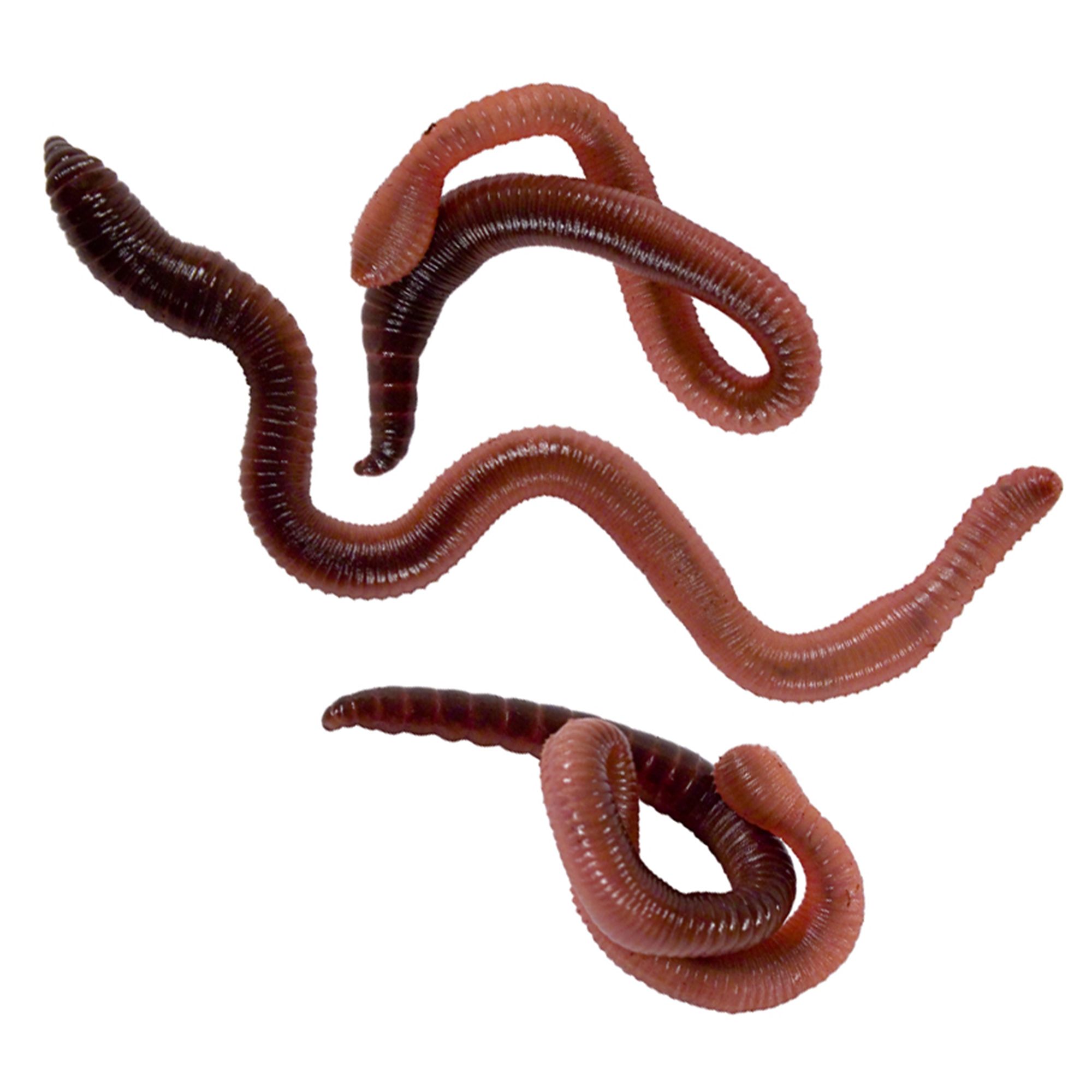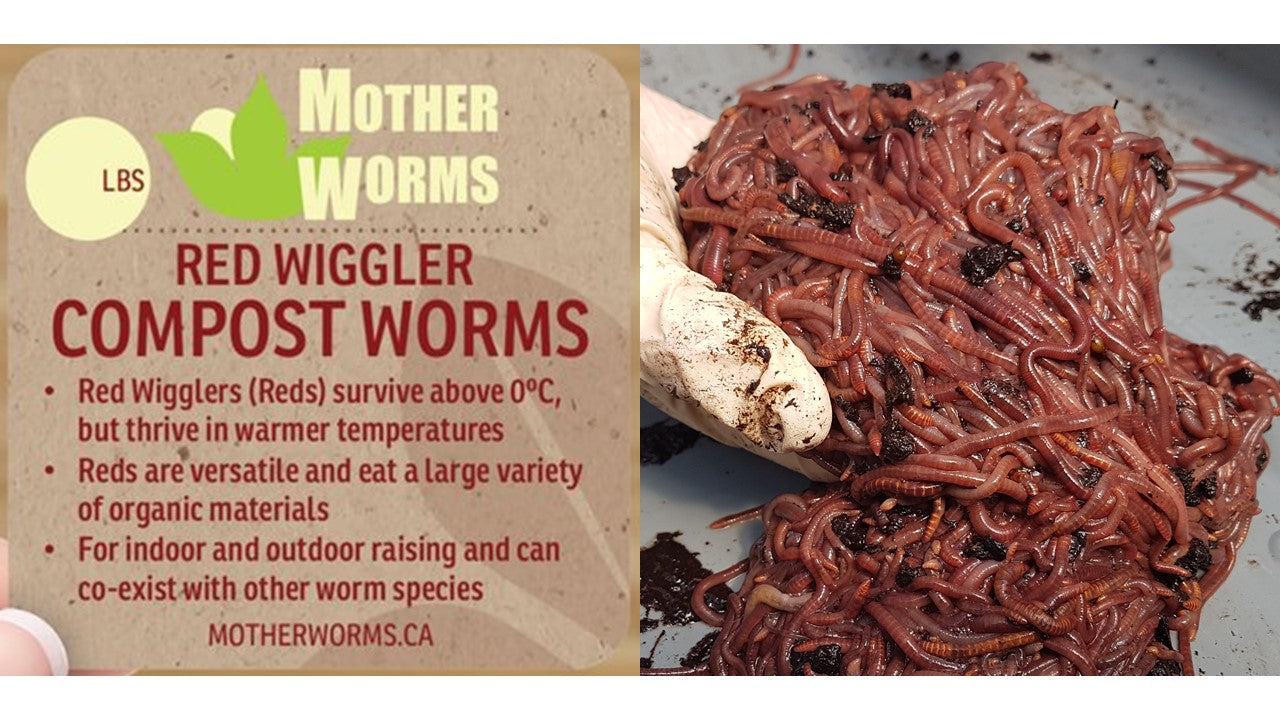Top Benefits of Red Wigglers for Your Composting Requirements

Enhanced Garden Compost Quality
One can value the considerable effect that red wigglers have on compost top quality. These earthworms, particularly Eisenia fetida, are renowned for their capacity to transform natural waste right into nutrient-rich vermicompost.
In addition to improving nutrition web content, red wigglers improve soil framework. Their burrowing activities create networks that promote aeration and drain, advertising a much healthier root atmosphere. The microbial task stimulated by their presence leads to a more diverse and energetic soil biota, which additionally adds to general plant wellness.
In addition, vermicompost retains moisture more efficiently than conventional compost, minimizing the demand for constant watering. This residential property is specifically useful in drought-prone locations. On the whole, the incorporation of red wigglers in composting techniques dramatically boosts the high quality of compost, making it a remarkable change for yards and agricultural applications.
Rapid Disintegration Process
The efficiency of the decomposition procedure is substantially improved by the existence of red wigglers, which actively increase the failure of natural materials (Red Wigglers Free Shipping). These earthworms, particularly Eisenia fetida, are renowned for their voracious cravings, taking in a considerable volume of food waste daily. As they prey on raw material, they break it down right into smaller sized particles, raising the surface location for microbial activity and accelerating decomposition
Furthermore, red wigglers thrive in a moist, nutrient-rich setting, which better advertises the growth of helpful microorganisms. This symbiotic relationship in between worms and microbes develops ideal problems for rapid decay. The worms' burrowing task aerates the garden compost, ensuring appropriate oxygen levels, which is essential for cardiovascular disintegration processes.
Furthermore, red wigglers can refine a varied series of natural materials, including kitchen area scraps, paper, and backyard waste, making them versatile composters. Their capability to transform waste into garden compost promptly not only decreases the quantity of waste sent out to land fills yet also creates an important resource for garden enthusiasts and farmers. Fundamentally, the inclusion of red wigglers in composting systems substantially shortens the time needed for organic waste to disintegrate, making them crucial allies in lasting waste management.
Nutrient-Rich Castings
As red wigglers effectively damage down natural products, they create nutrient-rich castings, which are a highly valuable by-product of the composting process. These spreadings, usually referred to as vermicompost, have a wealth of essential nutrients including phosphorus, potassium, and nitrogen, making them an exceptional all-natural fertilizer for plants and yards.
The microbial task existing in red wiggler spreadings boosts dirt structure, advertising oygenation and water retention. This better soil quality brings about much healthier plant growth and raised plant yields. Furthermore, the slow-release nature of the nutrients in worm castings guarantees that plants obtain a consistent supply in time, minimizing the requirement for chemical fertilizers.
Furthermore, the presence of beneficial microorganisms in these castings plays an essential duty in suppressing soil-borne conditions, fostering a more durable yard ecological community. The application of worm castings not just enhances the dirt however also adds to sustainable gardening methods by reusing natural waste. On the whole, using red wigglers for composting not only generates nutrient-rich spreadings but likewise supports ecological balance while improving the performance of your gardening endeavors.

Odor Decrease Conveniences
Using red wigglers in composting systems significantly adds to odor decrease, creating a much more positive environment for both garden enthusiasts and neighbors. These worms are extremely efficient at breaking down raw material, such as food scraps and lawn waste, which can usually right here create undesirable smells if delegated decay anaerobically.
Red wigglers prosper in cardiovascular problems, implying they need oxygen to survive. By advertising cardiovascular decomposition, they help to minimize the manufacturing of foul-smelling gases like ammonia and hydrogen sulfide that are usual in inadequately handled compost heaps. Their consistent motion with the compost aids make sure that oxygen is evenly dispersed, additionally enhancing the cardio procedure.
In addition, red wigglers take in damaging microorganisms and natural materials that add to odors, transforming them right into nutrient-rich castings. This not just decreases undesirable smells yet likewise adds to a healthier garden compost environment.
Eco-Friendly Waste Monitoring

The impact of red wigglers on waste reduction is significant. By diverting natural waste from landfills, where it would produce methane-- a potent greenhouse gas-- these worms add to a decrease in general carbon discharges. Moreover, their capability to enhance dirt wellness advertises sustainable farming methods, promoting biodiversity and minimizing the requirement for chemical fertilizers.
Including red wigglers into waste monitoring methods not only addresses garbage disposal problems however also urges neighborhood communities to adopt even more sustainable techniques. By promoting understanding of vermicomposting and its benefits, people can actively join environment-friendly efforts, eventually leading to a much healthier planet. Hence, red wigglers work as a vital part in the pursuit visit this page of lasting waste management remedies.
Final Thought
The combination of red wigglers right into composting methods dramatically enhances the overall high quality and efficiency of organic waste processing. On the whole, red wigglers serve as an important element in the quest for environmentally accountable and reliable composting services.
The consolidation of you can try these out red wigglers into composting methods provides several significant advantages that can enhance both the efficiency and effectiveness of natural waste monitoring. In significance, the inclusion of red wigglers in composting systems dramatically reduces the time required for natural waste to decompose, making them essential allies in sustainable waste monitoring.
Red wigglers play a pivotal duty in eco-friendly waste monitoring by successfully recycling natural materials that would certainly or else contribute to landfill waste.Including red wigglers into waste management approaches not just addresses waste disposal problems but also urges local communities to take on more lasting techniques.The assimilation of red wigglers right into composting techniques dramatically boosts the general high quality and performance of natural waste handling.